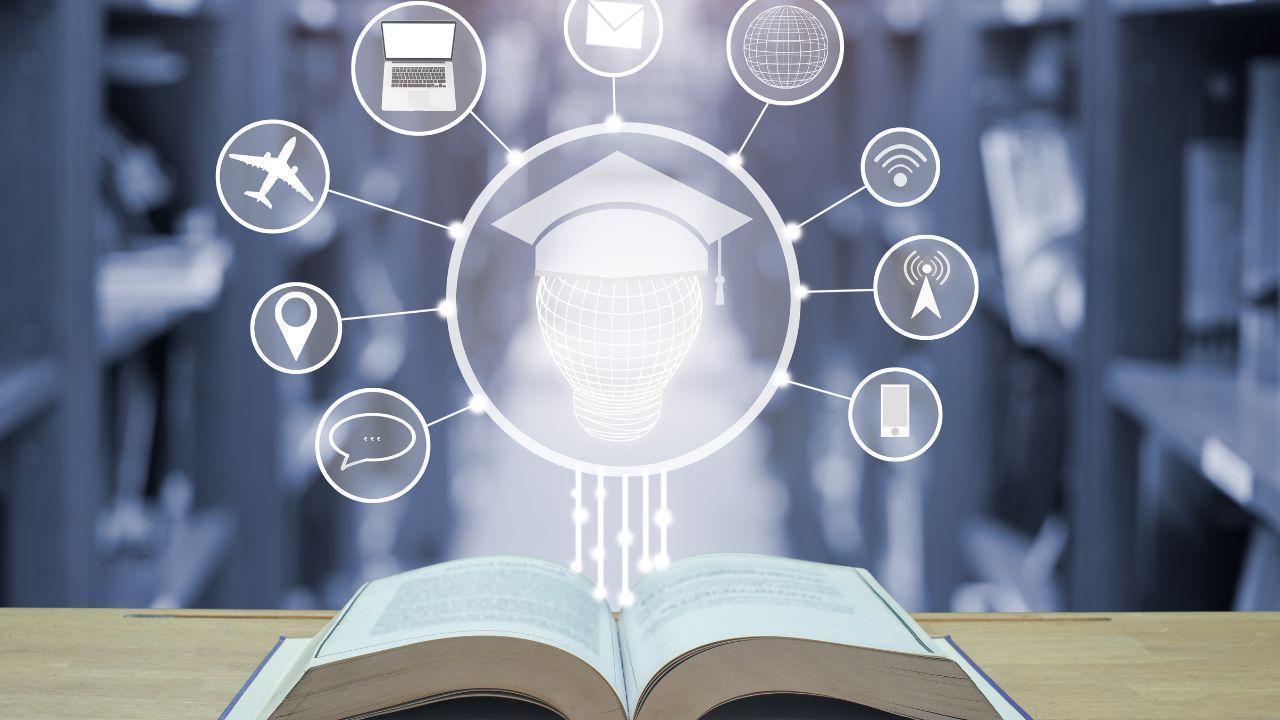
Post by : Vansh
In today’s rapidly evolving world, the connection between education and technology has become inseparable. Schools, colleges, and training centers are transforming into hubs of innovation where digital tools are shaping how students learn and prepare for the future. The idea of technology education goes beyond using gadgets; it is about empowering learners with critical thinking, digital literacy, and adaptability to thrive in tomorrow’s workplaces. The rise of online platforms, smart classrooms, and interactive learning methods has given birth to what we now call future-ready minds—students who are equipped with the skills, creativity, and resilience needed to face an unpredictable world.
The traditional classroom that once relied on chalkboards and textbooks has now shifted to digital blackboards, tablets, and cloud-based resources. This shift is not just a matter of convenience but a necessity. Digital learning allows students to access a wealth of knowledge instantly, from online courses to interactive simulations. For example, a science student can now conduct virtual lab experiments, while a history student can explore ancient civilizations through virtual reality. These changes make learning more engaging, inclusive, and tailored to different learning styles.
The focus on technology in education also ensures that students are not just memorizing facts but are developing problem-solving skills. Through coding lessons, AI-driven learning apps, and gamified education, learners acquire a mindset that blends creativity with analytical thinking. This prepares them to handle real-world challenges that go beyond the classroom.
One of the most important aspects of technology education is preparing students for the future job market. Employers are no longer just looking for degrees; they want employees who understand digital tools, data analysis, communication platforms, and innovative problem-solving. By integrating these skills early in the curriculum, students are not only becoming future employees but also potential entrepreneurs and innovators.
For example, learning coding in schools is no longer optional. It’s becoming as fundamental as mathematics or language studies. Similarly, exposure to artificial intelligence, robotics, and cloud computing gives learners an edge in a world where technology is central to every profession. This is why technology education is often referred to as the passport to employability and success in the 21st century.
Another remarkable advantage of technology in classrooms is personalization. Every student learns at their own pace, and digital platforms make it possible to tailor education to individual needs. AI-powered apps can analyze a student’s strengths and weaknesses and create customized lesson plans to help them improve. This ensures that learning is not “one size fits all” but instead becomes a journey designed for each learner.
Technology also breaks barriers for students with disabilities or those living in remote areas. With tools such as text-to-speech software, virtual classrooms, and online resources, education has become more inclusive and accessible than ever before. This creates a level playing field where every child has the opportunity to become a future-ready mind regardless of their circumstances.
Beyond skills, technology fosters creativity and teamwork. Collaborative platforms such as Google Classroom, Microsoft Teams, and other virtual project tools allow students to work together regardless of their physical location. This mirrors how workplaces operate today—where teams from across the globe collaborate online.
Moreover, tools like digital storytelling, 3D printing, and graphic design software encourage students to express themselves in new ways. Creativity combined with technical knowledge creates learners who can think outside the box, innovate, and make meaningful contributions to society.
While the benefits of digital learning are clear, challenges remain. Not all schools have equal access to high-speed internet, modern devices, or trained educators. The digital divide can widen inequalities if not addressed properly. To truly shape tomorrow with future-ready minds, governments, institutions, and private organizations must invest in infrastructure, teacher training, and affordable access to digital tools.
There are also concerns about over-reliance on technology, with some critics warning that too much screen time may harm attention spans or reduce face-to-face interactions. Balancing technology with traditional teaching methods is crucial for maintaining a healthy and effective learning environment.
Teachers are no longer just knowledge providers but facilitators and guides. With technology doing much of the heavy lifting in terms of information access, educators focus on mentorship, critical thinking, and ethical use of technology. They help students navigate the digital world responsibly and prepare them to use technology for growth rather than distraction.
Professional development programs ensure teachers themselves stay updated with the latest tools, enabling them to integrate innovative methods in their teaching. In this way, educators play a vital role in shaping the future of technology education.
The information presented in this article is intended for general knowledge and educational purposes only. It highlights the evolving role of technology in modern education and its potential impact on future learning systems. Readers are encouraged to seek additional perspectives and professional advice where necessary. MiddleEastBulletin news does not assume responsibility for individual interpretations or decisions made based on the content provided.










Curry Powers Warriors to Nail-Biting 109-108 Victory Against Spurs
Stephen Curry's 49 points propel the Warriors to a dramatic 109-108 NBA Cup triumph over the Spurs,

India Advances to Semi-Finals After Thrashing USA in Women’s Blind T20 World Cup
India secured a dominant ten-wicket victory over the USA, advancing to the semi-finals in the Women’

South Africa's Early Advantage as India Struggles on Day Two
On Day Two, India reached 138-4 as South Africa took three early wickets, complicating matters with

Kenta Nishimoto Defeats Lakshya Sen in Japan Masters Semifinal
Lakshya Sen's journey in the Japan Masters ends after losing to Kenta Nishimoto 19-21, 21-14, 12-21

Kenta Nishimoto Defeats Lakshya Sen in Japan Masters Semifinals
Lakshya Sen's run at the Japan Masters concludes with a loss to Kenta Nishimoto in the semifinals, 1

Major IPL Trade: Jadeja Joins Royals as CSK Signs Samson
In a significant IPL trade, CSK has acquired Sanju Samson from Rajasthan Royals in exchange for Ravi